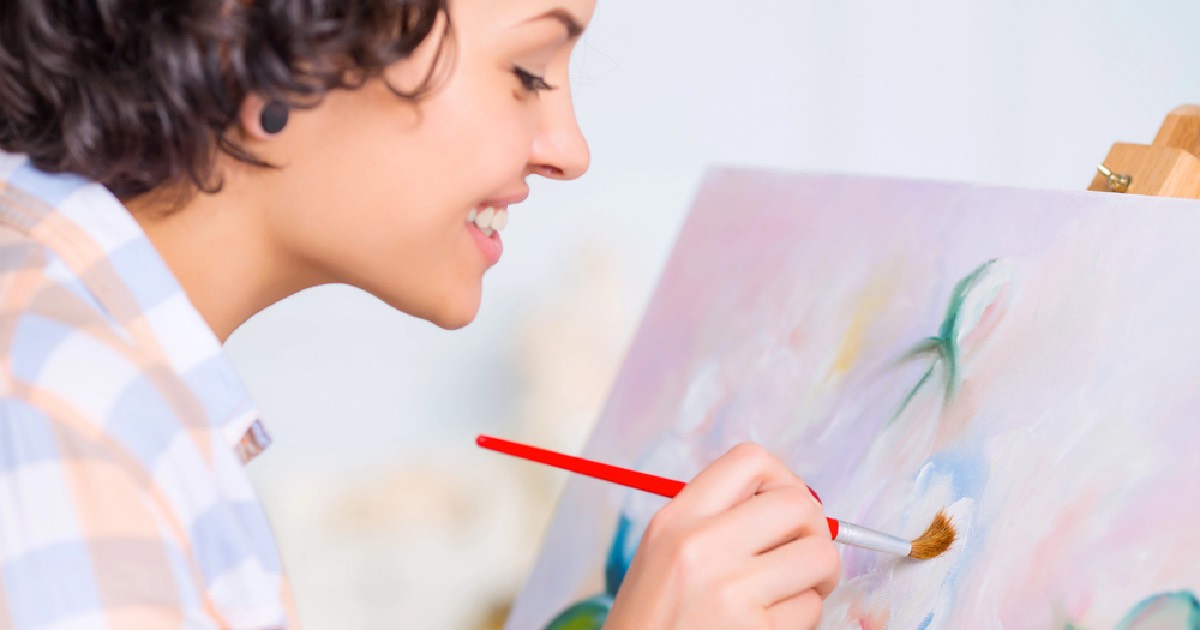Art therapy is a unique form of psychotherapy that combines the creative process of making art with the exploration of emotions and thoughts. By engaging in artistic expression, individuals can gain insight into their feelings, develop coping mechanisms, and improve their overall mental health. Whether through painting, drawing, sculpture, or other forms of creative expression, art therapy has been shown to have numerous therapeutic benefits for people struggling with their mental health. Let’s explore the key benefits of art therapy and how it can promote emotional well-being.
Expression Beyond Words
One of the primary benefits of art therapy is that it allows people to express emotions and experiences that may be difficult or even impossible to put into words. Some emotions, such as deep sadness, fear, or trauma, can feel overwhelming and hard to articulate. Art provides a non-verbal outlet for these feelings, enabling individuals to convey their inner world in a way that feels safe and controlled. This is particularly helpful for people who have experienced trauma or those with mental health conditions like depression, anxiety, or post-traumatic stress disorder (PTSD).
Stress and Anxiety Reduction
Creating art has been shown to reduce levels of cortisol, the hormone associated with stress. The act of focusing on a creative task can help individuals take their minds off their worries, promoting relaxation and mindfulness. Art therapy also encourages individuals to be present in the moment, engage with their creativity, and let go of anxious thoughts. Whether painting, drawing, or molding clay, the tactile experience of creating something with one’s hands can have a calming effect on both the mind and body.
Self-Exploration and Self-Awareness
Art therapy fosters self-reflection, encouraging individuals to explore their thoughts, emotions, and experiences. By visually expressing their feelings, individuals can gain new insights into their inner world, leading to greater self-awareness. The therapist plays an important role in helping the individual interpret their art, uncovering subconscious thoughts or patterns that may be influencing their mental health. This increased self-awareness can be a powerful tool for personal growth and healing.
Emotional Release
Art therapy provides a safe space for emotional release, allowing individuals to express difficult emotions such as anger, grief, frustration, or sadness. Releasing these emotions through creative expression can help reduce the intensity of the feelings and promote emotional balance. For people who tend to suppress their emotions, art therapy can offer an alternative outlet for expression, reducing the risk of emotional overload or burnout.
Trauma Processing and Healing
Art therapy is particularly effective for individuals dealing with trauma. Traumatic experiences are often stored in the brain in non-verbal ways, making it difficult to process them through traditional talk therapy alone. Art therapy helps individuals externalize their trauma, creating a visual representation of their experiences. This can make it easier to process and heal from traumatic memories. Moreover, the creative process can foster a sense of control and empowerment, which is crucial for trauma recovery.
Social Connection and Communication
For individuals who may struggle with verbal communication, such as those with autism or social anxiety, art therapy offers an alternative form of communication. Art allows individuals to express themselves in a way that feels more comfortable, making it easier to connect with others. Group art therapy sessions can also promote social interaction and build a sense of community, providing individuals with the opportunity to share their experiences with others in a supportive environment.
Support for a Range of Mental Health Conditions
Art therapy can benefit individuals with a wide range of mental health conditions, including:
- Depression: Art therapy helps individuals explore the root causes of their depression and express emotions they may find difficult to talk about.
- Anxiety: The creative process can serve as a form of mindfulness, helping to calm the mind and reduce anxious thoughts.
- Post-Traumatic Stress Disorder (PTSD): Art therapy provides a safe outlet for trauma survivors to express and process their experiences.
- Eating Disorders: Art therapy can help individuals explore issues related to body image, control, and self-esteem in a non-verbal, creative way.
Personal Growth and Transformation
Art therapy is not just about managing mental health symptoms—it can also be a powerful tool for personal growth and transformation. The creative process allows individuals to explore their identity, develop new skills, and build resilience. Over time, many people who engage in art therapy find that it fosters a deeper sense of purpose, self-discovery, and emotional well-being.
Art Therapy for Mental Health and Substance Use in Santa Rosa, CA
Art therapy offers a unique and effective way to improve mental health by combining creativity with therapeutic techniques. Whether used as a standalone treatment or in conjunction with other forms of therapy, art therapy can help individuals express difficult emotions, reduce stress, and build self-esteem. If you or someone you know is struggling with mental health challenges, consider exploring the transformative power of art therapy, which is offered here at Pura Vida. Contact us today at 707-879-8432 to learn more.





